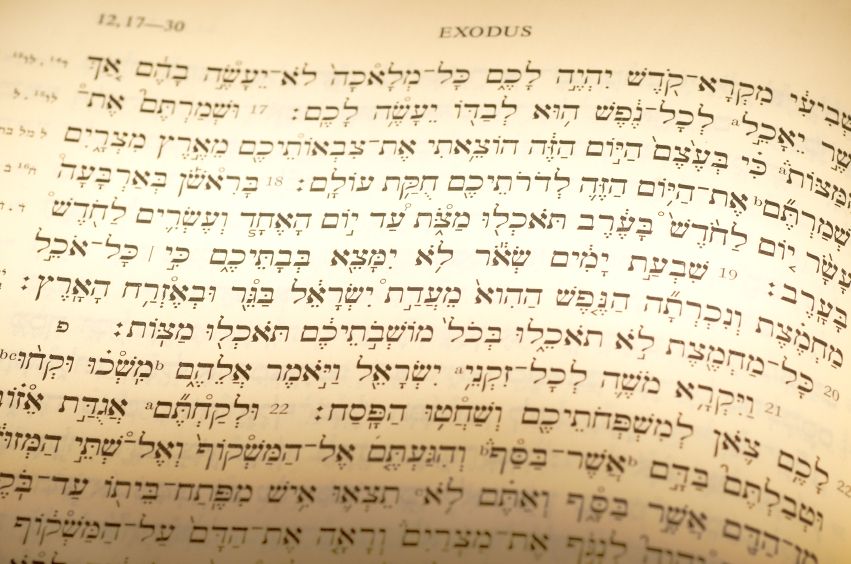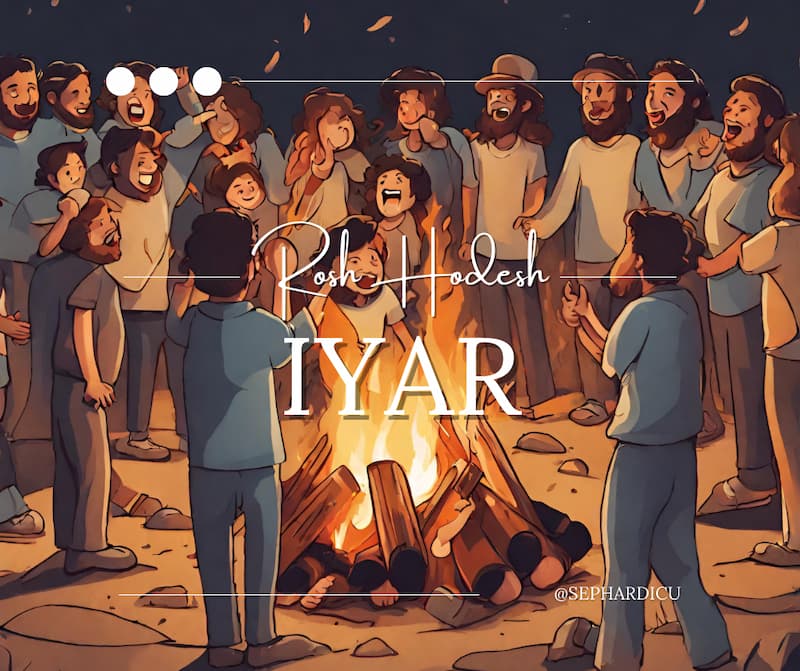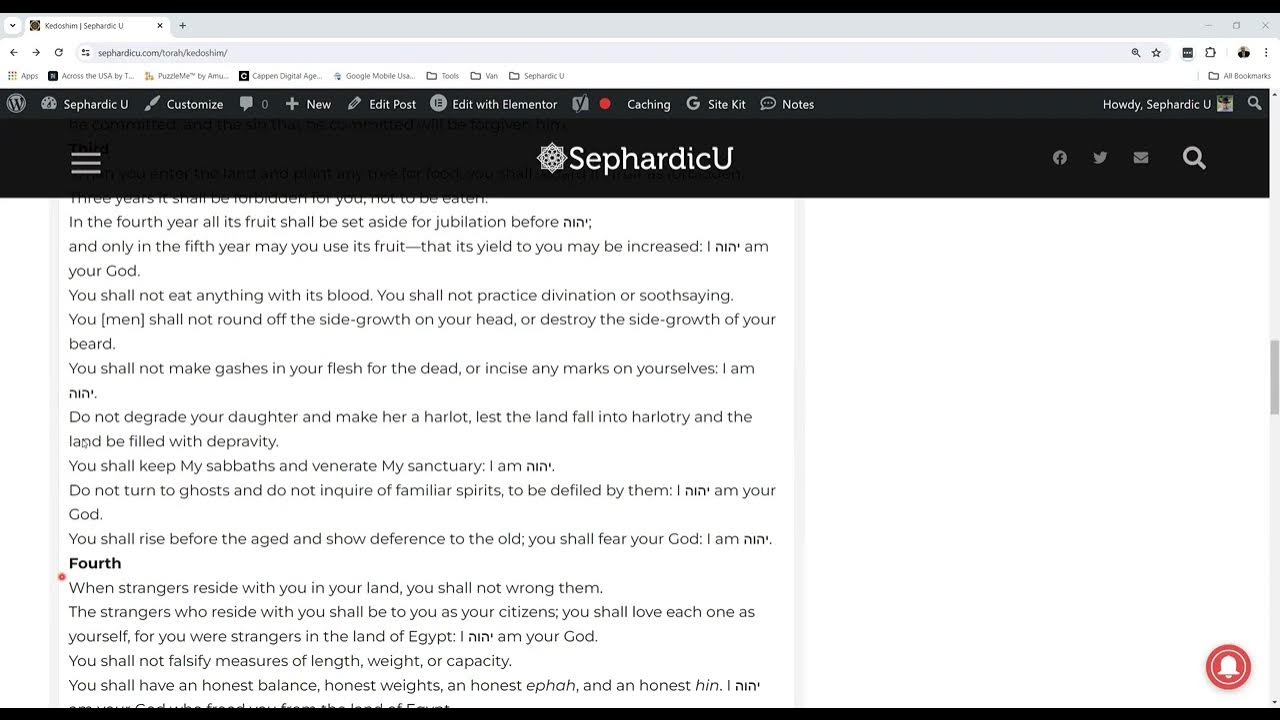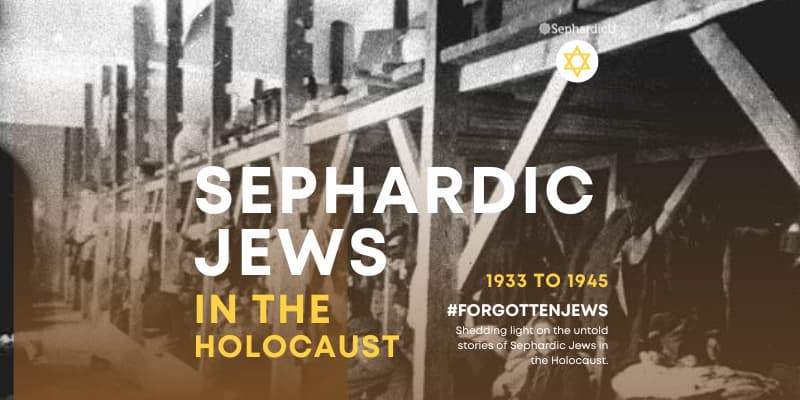TORAH READING FOR PASSOVER
During Passover, Jews observe special Torah and Haftarah readings that coincide with the holiday’s eight days, including the intermediary days known as Chol HaMoed. These readings, drawn from the biblical texts, are integral to the Passover observance, offering insights into the themes of liberation, redemption, and renewal. Additionally, Shabbat occurring during Passover presents unique readings, combining passages from Exodus, Numbers, and Ezekiel. This table outlines the Torah and Haftarah readings for each day of Passover, along with any exceptions or variations in the readings for Shabbat and other special occasions.
| Day | Torah Reading | Haftarah Reading | Exceptions/Notes |
|---|---|---|---|
| 1st Day | Exodus 12:21-51 | Joshua 3:5-7; 5:2-6:1, 6:27 (Sephardim) | 1st day: Exodus 12:21-51; 2nd day: Leviticus 22:26-23:44 |
| 2nd Day | Leviticus 22:26-23:44 | Jeremiah 31:1-20 | 2nd day: Leviticus 22:26-23:44; 3rd day: Exodus 13:1-16 |
| 3rd Day | Exodus 13:1-16 | Ezekiel 36:37-37:14 | 3rd day: Exodus 13:1-16; 4th day: Exodus 22:24-23:19 |
| 4th Day | Exodus 22:24-23:19 | Isaiah 10:32-12:6 | 4th day: Exodus 22:24-23:19; 5th day: Leviticus 9:1-14 |
| 5th Day | Leviticus 9:1-14 | Samuel 20:18-42 | 5th day: Leviticus 9:1-14; 6th day: Exodus 33:12-34:26 |
| 6th Day | Exodus 33:12-34:26 | Ezekiel 37:1-14 | 6th day: Exodus 33:12-34:26; 7th day: Numbers 28:19-25 |
| 7th Day | Numbers 28:19-25 | II Kings 23:1-9 | 7th day: Numbers 28:19-25; 8th day: Deuteronomy 15:19-16:17 |
| 8th Day | Deuteronomy 15:19-16:17 | Isaiah 10:32-12:6 | 8th day: Deuteronomy 15:19-16:17 |
| Shabbat | Exodus 33:12-34:26; Numbers 28:19-25 | Ezekiel 37:1-14 | Torah reading: Exodus 33:12-34:26; Numbers 28:19-25; Haftarah: Ezekiel 37:1-14 |
Exodus 12:21-51; Numbers 28:16-25
Haftarah for Sephardim: Joshua 5:2-6:1, 6:27
Leviticus 22:26-23:44; Numbers 28:16-25
Haftarah: II Kings 23:1-9, 23:21-25
Exodus 13:1-16; Numbers 28:19-25
Haftarah: refer to Sefaria
Exodus 22:24-23:19; Numbers 28:19-25
Haftarah: refer to Sefaria
Numbers 9:1-14, 28:19-25
Haftarah: refer to Sefaria
Exodus 13:17-15:26; Numbers 28:19-25
I will sing to יהוה, for He has triumphed gloriously;
Horse and driver He has hurled into the sea.
He is become my deliverance.
This is my God and I will enshrine Him;
The God of my father’s [house], and I will exalt Him.
יהוה is His name!
He has cast into the sea;
And the pick of his officers
Are drowned in the Sea of Reeds.
They went down into the depths like a stone.
Your right hand, יהוה, shatters the foe!
You send forth Your fury, it consumes them like straw.
The floods stood straight like a wall;
The deeps froze in the heart of the sea.
“I will pursue, I will overtake,
I will divide the spoil;
My desire shall have its fill of them.
I will bare my sword—
My hand shall subdue them.”
They sank like lead in the majestic waters.
Who is like You, majestic in holiness,
Awesome in splendor, working wonders!
The earth swallowed them.
In Your strength You guide them to Your holy abode.
Agony grips the dwellers in Philistia.
The tribes of Moab—trembling grips them;
All the dwellers in Canaan are aghast.
Through the might of Your arm they are still as stone—
Till Your people cross over, יהוה,
Till Your people cross whom You have ransomed.
The place You made to dwell in, יהוה,
The sanctuary, O my lord, which Your hands established.
Sing to יהוה, for He has triumphed gloriously;
Horse and driver He has hurled into the sea.
Haftarah: II Samuel 22:1-51
O LORD, my crag, my fastness, my deliverer!
My shield, my mighty champion,-c my fortress and refuge!
My savior, You who rescue me from violence!
And I was delivered from my enemies.
The torrents of Belial terrified me;
The coils of Death engulfed me.
Cried out to my God;
In His Abode He heard my voice,
My cry entered His ears.
The foundations of heaven shook—
Rocked by His indignation.
From His mouth came devouring fire;
Live coals blazed forth from Him.
Thick cloud beneath His feet.
He was seen-h on the wings of the wind.
Dripping clouds, huge thunderheads;
Blazed fiery coals.
The Most High sent forth His voice;
Lightning, and put them to rout.
The foundations of the world were laid bare
By the mighty roaring of the LORD,
At the blast of the breath of His nostrils.
Drew me out of the mighty waters;
From foes too mighty for me.
But the LORD was my stay.
He rescued me because He was pleased with me.
He requited the cleanness of my hands.
And have not been guilty before my God;
And have not departed from His laws.
And have guarded myself against sinning—
According to my purity in His sight.
With the blameless hero, blamelessly.
And with the perverse You are wily.
And You look with scorn on the haughty.-l
The LORD lights up my darkness.
With my God, I can scale a wall.
The word of the LORD is pure.
He is a shield to all who take refuge in Him.
Who is a rock except God?—
Who kept my path secure;
And set me firm on the heights;
So that my arms can bend a bow of bronze!
And Your providence has made me great.-q
And my feet have not slipped.
I did not turn back till I destroyed them.
They rose no more, they lay at my feet.
Brought low my foes before me,
My foes—and I wiped them out.
To the LORD, but He answered them not.
Stamped, crushed them like dirt of the streets.
Kept me to be-t a ruler of nations;
Peoples I knew not must serve me.
Paid me homage at the mere report of me.
And come trembling out of their fastnesses.-q
Exalted be God, the rock
Who gives me victory;
And made peoples subject to me,
Raised me clear of my foes,
Saved me from lawless men!
And hymn Your name:
Who deals graciously with His anointed,
With David and his offspring evermore.
Deuteronomy 15:19-16:17; Numbers 28:19-25
Haftarah: Isaiah 10:32-12:6
He shall stand and wave his hand.
O mount of Fair Zion!
O hill of Jerusalem!
Will hew off the tree-crowns with an ax:
The tall ones shall be felled,
The lofty ones cut down:
And the Lebanon trees shall fall in their majesty.
A twig shall sprout from his stock.
A spirit of wisdom and insight,
A spirit of counsel and valor,
A spirit of devotion and reverence for GOD.
He shall not judge by what his eyes behold,
Nor decide by what his ears perceive.
And decide with justice for the lowly of the land.
He shall strike down a land with the rod of his mouth
And slay the wicked with the breath of his lips.
And faithfulness the girdle of his waist.
The leopard lie down with the kid;
The calf, the beast of prey, and the fatling together,
With a little boy to herd them.
Their young shall lie down together;
And the lion, like the ox, shall eat straw.
Over a viper’s hole,
And an infant pass its hand
Over an adder’s den.
Nothing evil or vile shall be done;
For the land shall be filled with devotion to GOD
As water covers the sea.
The stock of Jesse that has remained standing
Shall become a standard to peoples—
Nations shall seek his counsel
And his abode shall be honored.
And assemble the banished of Israel,
And gather the dispersed of Judah
From the four corners of the earth.
And Judah’s harassment shall end;
Ephraim shall not envy Judah,
And Judah shall not harass Ephraim.
And together plunder the peoples of the east;
Edom and Moab shall be subject to them
And the children of Ammon shall obey them.
“I give thanks to You, O GOD !
Although You were wroth with me,
Your wrath has turned back and You comfort me.
I am confident, unafraid;
For Yah — GOD —is my strength and might,
And has been my deliverance.”
From the fountains of triumph,
“Praise GOD, proclaim the divine name.
Make God’s deeds known among the peoples;
Declare that the divine name is exalted.
Who has done gloriously;
Let this be made known
In all the world!
You who dwell in Zion!
For great in your midst
Is the Holy One of Israel.”
Exodus 33:12-34:26; Numbers 28:19-25
Haftarah: Ezekiel 37:1-14









